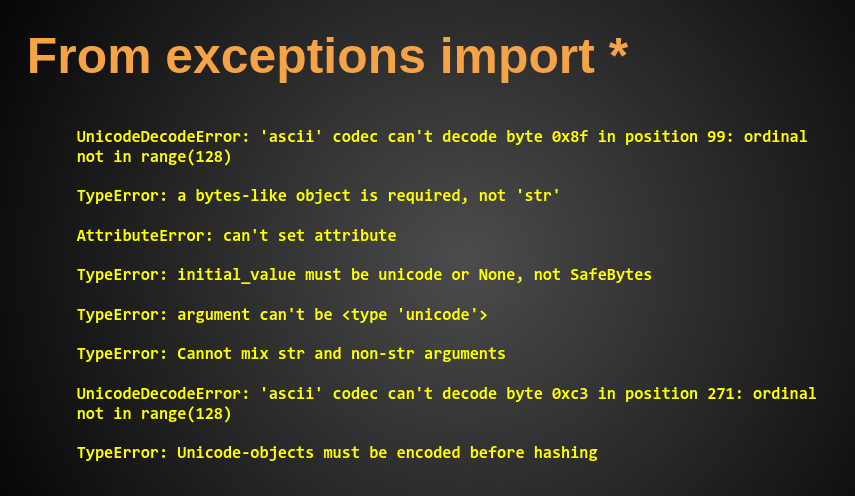How to port 100,000 lines of Python 2 to Python 3

TLDR: Use python-future.

TLDR: Use python-future.
This past week I started playing with GatsbyJS, a static site generator and framework centered around React.
I successfully used today it to generate a static version of this blog (I’m in the process of selecting the static site tool that will replace my vintage 2008 Django-based engine).
The componentization that React brings isn’t much of a win for me here, i.e. I’m not likely to be building components for my blog that I reuse elsewhere.
I wanted to have a quick way to see what the other team members are doing, and after pillaging a half-dozen SO posts this is what I came up with.
git branch -va --sort=-committerdate --format='%(HEAD) %(color:yellow)%(refname:strip=-1)%(color:reset) - %(color:red)%(objectname:short)%(color:reset) - %(contents:subject) - %(authorname) (%(color:green)%(committerdate:relative)%(color:reset))' --color=always
I added it to my git aliases as recent-commits. Sample output:
AC-6929 - e0c57582a - Added sorting to event list - Pat (2 hours ago)
AC-7054 - 0a9c84222 - Updated 'No mentor selected' option - Sam (5 hours ago)
AC-7053 - 337ef4071 - Removed duplicate values in formset - Charlie (6 hours ago)
A couple weeks ago I accidentally replaced our live, production database with a 17-hour old snapshot.
I had intended to target a test server, not production. I didn’t realize what I had done for an hour or so, and by that time I had already left work. (I was actually out walking my dog. Not a good setting for managing a production crisis.)
Here’s how my team and I handled it.
After a couple years of mostly using XMonad on my Linux machines instead of a standard Desktop Environmnt, I’m coming around to using XFCE. I’ve always liked it; it’s been my installed “fallback” DE (for when you need the damned settings dialog for some thing or other). Now it’s becoming my primary.
I like the low resource use. I don’t hate Unity and Gnome Shell but they are too much for my older machines.